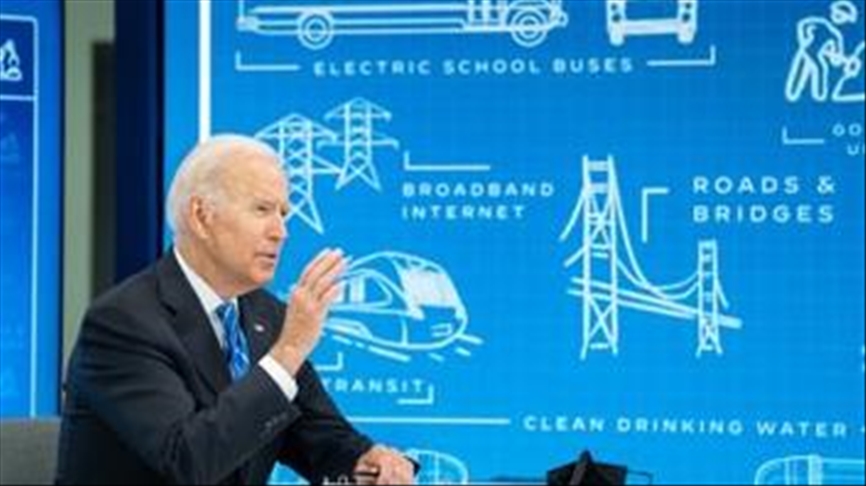 Credit: https://twitter.com/POTUS
Credit: https://twitter.com/POTUS
ANKARA
US President Joe Biden on Monday signed the $1.2 trillion bipartisan infrastructure bill into law.
"This law makes the most significant investment in roads and bridges in the past 70 years," Biden said during a press conference at the White House before signing the bill.
"It makes the most significant investment in passenger rail in the past 50 years and in public transit ever," he added.
The infrastructure bill includes plans to invest $550 billion in transportation, internet broadband and utilities.
It includes $110 billion for roads and bridges, $50 billion for federal highways, $66 billion for freight and passenger rail, $39 billion for public transit, $65 billion for broadband expansion and $55 billion for improving water systems and pipelines.
The investments are planned to be spread out over five years.
While the investments will ensure less air pollution for the environment, Biden said they will also modernize ports and airports and reduce supply chain bottlenecks.
The bill invests $17 billion in port infrastructure and $25 billion in airports.
The president said it will also create a national network of charging stations for electric vehicles and include clean energy technologies and the manufacturing of solar panels, wind turbines, battery energy storage systems and electric school buses.
He stressed that no American earning less than $400,000 a year will pay federal taxes because of the law.
A lot of people told me the Bipartisan Infrastructure Deal was impossible, but I refused to believe that. I believed we could get a bipartisan agreement and still come together in this country to get big things done.
— President Biden (@POTUS) November 14, 2021
Tomorrow, I sign it into law. pic.twitter.com/FcHe4FiFRc
Biden argued last week that the bill would bring down costs, reduce supply bottlenecks and make goods more available and less costly as the US, like the rest of the world, struggles with supply chain issues and record high inflation.
"This infrastructure bill will help us meet the challenges of our time, strengthen our crucial supply chains and lay the foundation of another generation of economic prosperity," Senate Majority Leader Chuck Schumer said during the press conference, adding the bill can be summoned up as "jobs."
Biden now faces obstacles in Congress to pass his nearly $2 trillion Build Back Better Act focusing on a social safety net and climate policy which aims to lower costs for American families through affordable health coverage alongside cutting taxes for 50 million Americans.
The House of Representatives is expected to pass its version of the act this week, House Speaker Nancy Pelosi said in the press conference.








